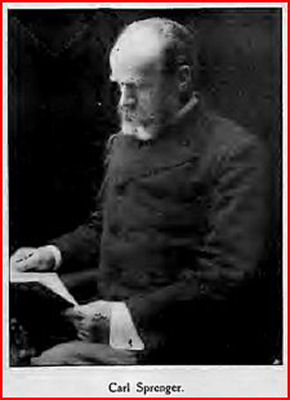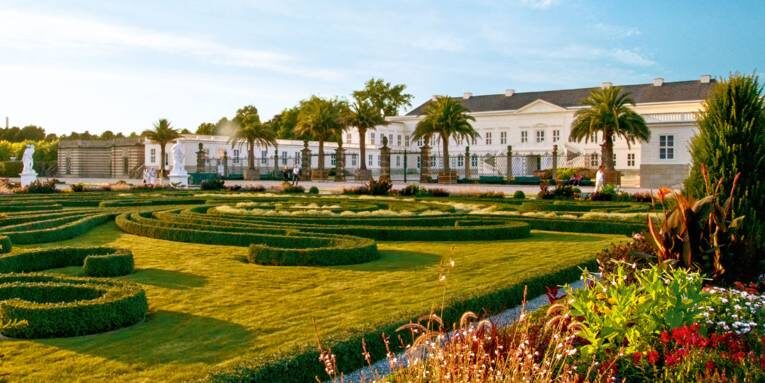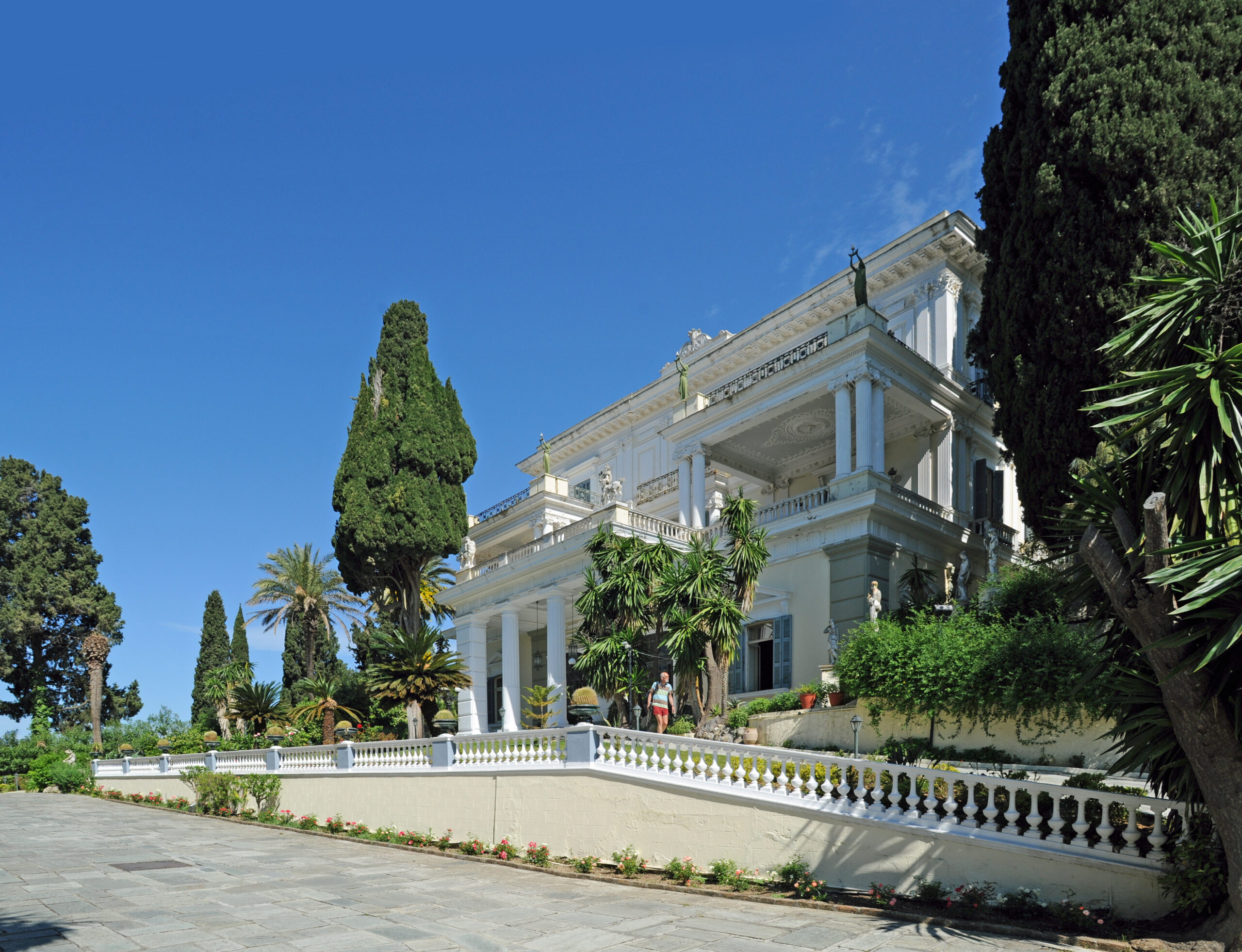In an article delivered to the International Dendrology Society by By Councilor Bern. Sprenger, the writer described the life of his cousin Karl Sprenger.
Karl Sprenger was the creator of what we now call the Italian Group of Cannas.

As an early orphaned child, Karl Sprenger spent his early youth among flowers and fruit trees, outside the doors of the old city of Güstrow, located in Mecklenburg-Western Pomerania, Germany and which is, as I believe, a “green city”, which is even today renowned for its surrounding meadows, gardens and forests.
My cousin Karl attended only primary school and after his confirmation, hardly 15 Years old, he became apprenticed to the commercial gardener Bagley, who owned large estates in the suburb of Schwerin and employed many young people, including my brother, who were professionally well trained. Karl grew up lonely and quiet and had a somewhat shy nature.
On completion of his apprenticeship, Sprenger found employ in 1865 at the Hanover Hofgarten to Herrenhausen Palace. Queen Matie and her daughters often visited the grounds there, and the young man, delighted by frequent discussions with them, became a patriot of the first magnitude.
Shortly afterwards cousin Karl donned a uniform as an alliance of Prussians and other Germans, drove the French back beyond the Loire. After the Battle of Orleans, on December 16, 1870, in Grimer spending the night in the cold in the snow-covered forest, the Mecklenburg hunter Sprenger suffered an ear problem, which resulted in him completely losing his hearing over time.

The gardens of Herrenhausen Palace, Hanover
Karl Sprenger used the period after the campaign until 1875 for uplift his inadequate school education, by studies and travels in Germany. Then he and my brother leased a nursery in Agram in Carinthia, which was advantageously replaced the following year by a well-known seed store and mail-order nursery in Graz.
A surgical procedure on his hearing and pneumonia forced him later to seek out a southern climate. On the Soromaean Islands in Lake Maggiore he found a female German Count’s family, who were sitting on a dilapidated estate, and found a position that suited him for a while in which he could fully pursue his passions in the refinement and crossing of plants.
Later years travelling throughout Italy, he ended up in the small town of San Giovanni a Teduccio near Portici at the foot of Mount Vesuvius. To earn some money, he grew all sorts of early vegetables, which were especially shipped to England. Then, through his acquaintance with a wealthy, sick countryman who became his partner, he came up with the idea of growing strawflowers of all kinds on a large scale for a wreath factory in Leipzig.
But such a stereotyped, large-scale culture could not satisfy a spirit as lively and creative as that of cousin Karl. He therefore separated from his business partner after a few years and founded his beloved Hortus botanicus Vomeriensis high above Naples, on the Vomero. In it he lived and worked entirely as he pleased. He had complete leisure to devote himself to his botanical studies, both theoretically and practically, and to utilize them in his writing. With many specialist publications in German, Italian, French and English in high circulation, he dealt with a wide range of topics in an appealing manner.
In correspondence with experts from all over the world, he received seeds from all over the world and used them for experimental cultures that lasted for years. This resulted in the most surprising successes, and many new plants were later honored in botany and in trade with the addition of our name. So, for example, the beautiful tendril-like ornamental Asparagus ‘Sprengeri’, which has found general distribution and is now already growing as a beautiful weed in the area around Vomero.
Armed with recommendations, the deaf cousin later set out on a journey alone to Andalusia, visited the famous huertas in Valencia, the rice fields near the old Moorish town of Jativa, the orange groves near Cargagente and Denia, the vineyards of Alikant and the only larger European palm forest in Elche. Then he roamed the Sierra Nevada, the gardens of the Alharabra near Granada and the Sierra Morena, from Seville and Cordoba, finally returning home through Portugal via the north of Spain through the Basque provinces on the French side of the Pyrenees, already known to him from an earlier visit.

One day there, a telegram disturbed him like a lightning bolt from his contemplative scholarly peace. The Consul General, who had previously known him in Naples, had traveled as the Chamberlain to the Kaiser on board the Royal Yacht “Hohenzollern” to Corfu for the first time to visit the newly acquired Imperial possession, the Achilleion Palace. During a preliminary tour of the overgrown gardens and parks, the need for a new vision by a goal-conscious personality emerged. Cousin Karl was praised as being suitable, and the telegram was sent asking him to come to Corfu. Karl – the Sun or wandering uncle, as he liked to call himself to us, tied up his bundle and drove quickly via Brindisi to the legendary old town of Kerkyra.
The Kaiser toured his estate with Karl and was convinced by the appropriate statements that he had found the right man. The roughest work began immediately. Sailors from the German Navy were ordered from the “Hohenzollern” Royal Yacht, anchored of the island, to follow the instructions of the newly minted director, and soon the axe blows on the Aleppo pines that obstructed the view and the hundred-year-old cranky olive trees resounded loudly.

The sailors cleared the felled trees aside, and the Kaiser and his entourage could enjoy the most wonderful views through and into the distance in all directions. Then, during the next visit of the Imperial Family to Corfu there had been a complete transformation in the gardens. Magnificent carpet beds had been created, beautiful groups of trees were formed, especially through the daring and successful relocation of old palm trees, so that everyone was delighted. The emperor did not hold back in his recognition and, in front of the assembled entourage, had Colonel General von Plessen pin the Red Eagle Order on the chest of the beaming garden master.
After Italy seceded from the Triple Alliance, my cousin was given permission to leave. He was refused permission to return to Naples, and so he never saw again the second home he had loved so much. When the French occupied Corfu, he was locked up in prison in the city of Corfu for 11 days, then interned there and tortured by police measures. No exercise and kidney disease left the poor man in a desolate depression, especially since he was forbidden from any correspondence and was kept completely ignorant of world events.
Karl believed that Serbs defaced his Achilleion paradise with their presence, and despite all his ignorance about the course of the war, he had not given up hope of a happy outcome. So the old soldier got the idea that he shouldn’t leave his post, even if it was at a distance, so that he could be the first back there when the uninvited guests left and see that everything was going well.
In July I received the last message from my cousin in a postcard written in Low German. He cursed the French and the Greek doctors and responded to my renewed request to come to us in the Swiss mountains with a categorical: Qaod non! — that’s not an option.
On December 15th I received a telegram signed “Batzis”, from Rome on December 13th stating that cousin Karl had died in his house.
Canna ‘Roma’ and ‘Austria’ were introduced in 1894, so they must have been developed in the time spent at Lake Maggiore, because it would take 3 years to bulk-up plants for an introduction.